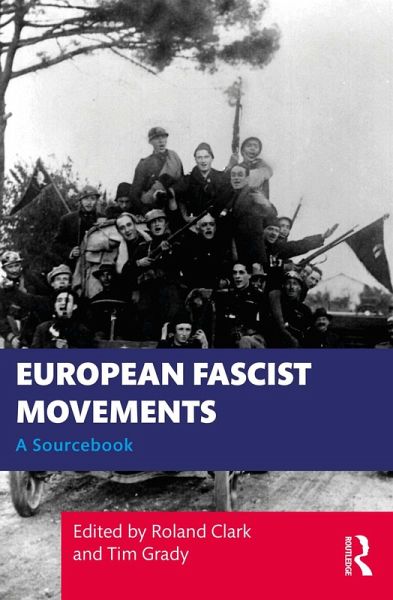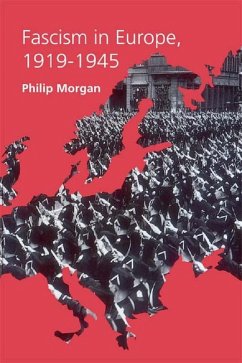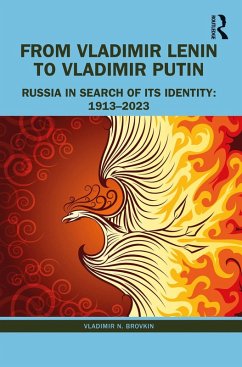
European Fascist Movements (eBook, PDF)
A Sourcebook
Redaktion: Clark, Roland; Grady, Tim
Versandkostenfrei!
Sofort per Download lieferbar
35,95 €
inkl. MwSt.
Weitere Ausgaben:

PAYBACK Punkte
18 °P sammeln!
This volume offers a fresh and original collection of primary sources on interwar European fascist movements. These sources reflect new approaches to fascism that emphasise the practical, transnational experience of fascism as a social movement, contextualising ideological statements within the historical moments they were produced.Divided into 18 geographically based chapters, contributors draw together the history of various fascist and right-wing movements, selecting sources that reflect themes such as transnational ties, aesthetics, violence, female activism, and the instrumentalisation of...
This volume offers a fresh and original collection of primary sources on interwar European fascist movements. These sources reflect new approaches to fascism that emphasise the practical, transnational experience of fascism as a social movement, contextualising ideological statements within the historical moments they were produced.
Divided into 18 geographically based chapters, contributors draw together the history of various fascist and right-wing movements, selecting sources that reflect themes such as transnational ties, aesthetics, violence, female activism, and the instrumentalisation of race, gender, and religion. Each chapter provides a chronological, narrative account of movements interspersed with complete primary sources, from political speeches, internal movement circulars and articles, police reports, oral history, songs and music, photographs, artworks, poetry, and anti-fascist sources. The volume as a whole seeks to introduce readers to the diversity of fascist groups across the continent, to show how fascist groups were constituted through social bonds, rather than around fixed ideologies, and to capture the inexperience and ad hoc character of early fascist groups.
With an Introduction that explains the volume's theoretical approach and elaborates on the chronology of European fascism, this is the perfect sourcebook for any student of Modern European history and politics.
The book is accompanied by a free app, available for download for iOS and Android from: https://www.liverpool.ac.uk/it/app-directory/fascistmovements/
You can use the app to identify places where fascist groups were active during the 1920s and 1930s, and to get a glimpse of what life was like during 'the age of fascism'. The app includes interactive maps, descriptions of 76 points of interest, and images for each point of interest.
Divided into 18 geographically based chapters, contributors draw together the history of various fascist and right-wing movements, selecting sources that reflect themes such as transnational ties, aesthetics, violence, female activism, and the instrumentalisation of race, gender, and religion. Each chapter provides a chronological, narrative account of movements interspersed with complete primary sources, from political speeches, internal movement circulars and articles, police reports, oral history, songs and music, photographs, artworks, poetry, and anti-fascist sources. The volume as a whole seeks to introduce readers to the diversity of fascist groups across the continent, to show how fascist groups were constituted through social bonds, rather than around fixed ideologies, and to capture the inexperience and ad hoc character of early fascist groups.
With an Introduction that explains the volume's theoretical approach and elaborates on the chronology of European fascism, this is the perfect sourcebook for any student of Modern European history and politics.
The book is accompanied by a free app, available for download for iOS and Android from: https://www.liverpool.ac.uk/it/app-directory/fascistmovements/
You can use the app to identify places where fascist groups were active during the 1920s and 1930s, and to get a glimpse of what life was like during 'the age of fascism'. The app includes interactive maps, descriptions of 76 points of interest, and images for each point of interest.
Dieser Download kann aus rechtlichen Gründen nur mit Rechnungsadresse in A, B, BG, CY, CZ, D, DK, EW, E, FIN, F, GR, HR, H, IRL, I, LT, L, LR, M, NL, PL, P, R, S, SLO, SK ausgeliefert werden.













